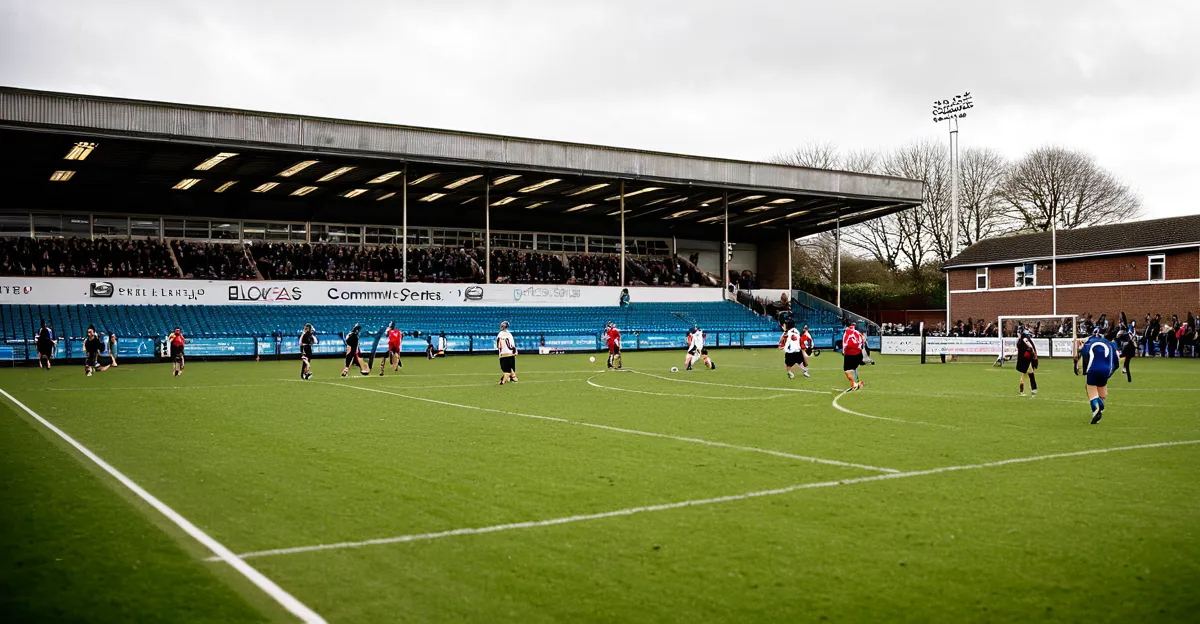Overview of Grassroots Sports Funding in the UK
Grassroots sports funding in the UK revolves around supporting the foundational level of sport—local clubs, schools, and community groups. The grassroots definition typically refers to sport played at the beginner or amateur level, focusing on participation rather than elite competition. This level is vital for promoting physical activity and nurturing future talent.
Funding sources for grassroots sports in the UK are diverse. They primarily include government grants, National Lottery contributions, private sponsorship, and community fundraising efforts. Each source plays a crucial role in sustaining clubs and enabling access to facilities and equipment.
Have you seen this : How Can New Technologies Enhance the Fan Experience at UK Sporting Events?
Government funding, through organizations like Sport England, often spearheads financial support. Simultaneously, local councils contribute by allocating regional grants to benefit nearby communities. Additionally, private sponsorship and commercial funding bring in resources from businesses eager to associate with positive community initiatives.
Understanding the structure of grassroots sports funding UK helps reveal the complex ecosystem that underpins accessible sports participation. It ensures that sports opportunities reach all corners of society, which is essential for promoting health, inclusion, and social cohesion across the UK.
Also to discover : How Can UK Sports Enthusiasts Stay Engaged During Off-Seasons?
Government Funding and Public Grants
Government funding stands as a cornerstone of grassroots sports funding UK, primarily channelled through Sport England, a key public body dedicated to boosting sports participation at the community level. Sport England allocates grants aimed at improving facilities, increasing access, and supporting local clubs. These public grants often form the most reliable funding source for grassroots initiatives, enabling consistent development and maintenance of sports infrastructure.
Local councils also play a significant role by providing regional grants tailored to community needs. Their involvement ensures funding reaches diverse areas, particularly benefiting smaller clubs or schools that might struggle to secure national grants. Examples include support for grassroots projects such as upgrading pitches or purchasing equipment.
Recent statistics highlight that Sport England’s investment in grassroots sports funding UK exceeded £250 million in a single cycle, underscoring the scale of government commitment.
This public funding framework ensures financial support combines nationwide strategies with local insights, creating a dynamic structure responsive to varied grassroots demands. Both Sport England and local councils focus on sustainability, encouraging projects that foster long-term community engagement in sport.
National Lottery and Major Funding Bodies
National Lottery funding is a pivotal grassroots sports funding UK source, significantly boosting community-level sports projects. Since its introduction, it has channelled billions into grassroots initiatives, enabling improved facilities, training programmes, and equipment supply. National Lottery funding often complements Sport England grants, enhancing the reach and impact of public investment.
Key funding bodies supporting grassroots sports include Sport England, UK Sport, and regional sports partnerships. Sport England itself receives substantial National Lottery funds, which it redistributes through targeted grant schemes aimed at increasing participation and inclusivity. UK Sport focuses more on elite performance but also contributes strategically to grassroots pathways.
National Lottery funding’s importance lies in its scale and flexibility. It allows grassroots organisations to plan sustainable projects with multi-year funding, crucial for long-term community engagement. Various schemes under these major funding bodies address specific needs, from facility refurbishment to youth programmes.
This combined approach by National Lottery funding and major funding bodies strengthens grassroots clubs, schools, and local groups, ensuring that financial resources reach those driving sport’s foundation in the UK. Their collaboration facilitates a diverse, resilient funding ecosystem that underpins grassroots sport nationwide.
Private Sponsorship and Commercial Funding
Private sponsorship and commercial funding represent vital funding sources within the grassroots sports funding UK landscape. Businesses often form corporate partnerships with local clubs, providing financial support, equipment, or services. This commercial involvement helps bridge gaps left by public funds and enables clubs to enhance their offerings.
Typical sponsorship models include direct cash donations, branded equipment supplies, and collaborative community events. Such partnerships benefit companies by associating their brand with community development and healthy lifestyles. For grassroots organisations, private sponsorship offers flexible funds often less restricted than public grants.
Examples abound of small local businesses sponsoring amateur football or cricket teams, while larger companies might back regional tournaments or youth programmes. This level of commercial funding allows grassroots clubs to plan activities, improve facilities, or subsidise participation costs.
Despite its importance, securing private sponsorship can be challenging for smaller clubs without marketing expertise or connections. Nevertheless, fostering strong relationships and demonstrating social impact remain key to attracting and maintaining these valuable private sponsorship arrangements in grassroots football and other sports across the UK.
Community Fundraising and Charity Involvement
Community fundraising plays a vital role in grassroots sports funding UK, often filling gaps left by formal funding sources. Local initiatives include events such as charity runs, bake sales, and crowdfunding campaigns, which engage residents and foster a sense of ownership. These activities not only raise financial support but also strengthen community bonds around sports participation.
Sports charities and trusts are pivotal in supporting grassroots clubs and schools. They provide targeted grants, equipment donations, and expert guidance to ensure funds are effectively used. Charities like local sports foundations often focus on inclusivity, helping to reach underrepresented groups in the grassroots sports landscape.
The combination of community fundraising and charitable involvement diversifies the funding sources available to grassroots organisations. This approach promotes sustainability by encouraging clubs to develop local support networks, reducing sole reliance on government or commercial funds. Moreover, community-led funding empowers clubs to respond quickly to specific needs, whether upgrading facilities or running youth programmes.
By nurturing local engagement, community fundraising and sports charities maintain the heart of grassroots sports in the UK, creating accessible opportunities for all participants.
Important Organizations Supporting Grassroots Sports
Supporting grassroots sports funding UK requires coordination among several key organizations. Sport England is the primary public body dedicated to increasing community sports participation. It manages significant public grants and National Lottery funding, ensuring funds are distributed efficiently to clubs, schools, and local groups. Sport England’s role extends beyond finance; it provides strategic guidance and promotes inclusive access across the UK.
UK Sport focuses more on elite sport but remains a strategic partner in the funding ecosystem, helping bridge grassroots pathways to high performance. Alongside these, numerous governing bodies and regional sports partnerships deliver tailored support, fostering local engagement and addressing specific community needs.
Collaboration is critical. These organizations work closely to maximize impact, share expertise, and streamline funding applications for grassroots sports funding UK. For example, coordination between Sport England and regional bodies ensures funding aligns with both national priorities and local demands. Voluntary bodies and charities also contribute, creating a network that nurtures participation at every level.
This cooperative framework is essential for sustaining grassroots sport, providing stability and adaptability amid shifting funding challenges, and ensuring that resources reach those who drive sport’s foundation in UK communities.



